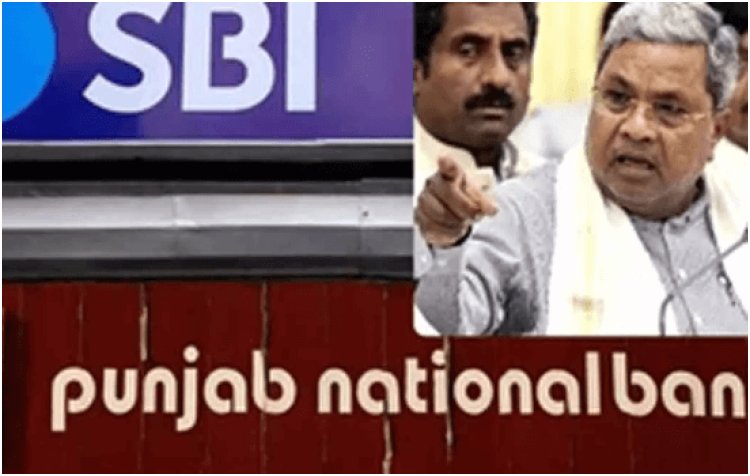Karnataka state government is poised to reverse its business relations with two major financial institutions, the State Bank of India (SBI) and Punjab National Bank (PNB).
This decision follows a wave of criticisms and concerns raised by various stakeholders, reflecting a significant shift in the state's banking partnerships.
The move comes amid growing scrutiny over the state's financial dealings and the impact these relationships have had on its economic policies and development projects. Both SBI and PNB have been key players in Karnataka's financial landscape, providing crucial services and support for various government projects and initiatives. However, recent controversies and criticisms have prompted the state government to reassess and potentially sever these ties.
Stakeholders, including local businesses, financial analysts, and political leaders, have voiced concerns about the effectiveness and transparency of these banking relationships. Issues such as delays in loan disbursements, inadequate support for small and medium enterprises, and allegations of financial mismanagement have been at the forefront of the criticism. These concerns have fueled a broader debate about the role of major financial institutions in supporting regional development and the need for greater accountability and efficiency in their operations.
In response to the criticisms, the Karnataka government has undertaken a comprehensive review of its financial partnerships. This review has highlighted several areas where the performance of SBI and PNB did not meet the state's expectations or align with its strategic goals. As a result, the government has decided to explore alternative banking relationships that better address its needs and concerns.
The decision to reverse business ties with SBI and PNB is part of a broader effort by the Karnataka government to enhance the efficiency and effectiveness of its financial operations. The government aims to ensure that its financial partners provide the necessary support for its development initiatives and contribute positively to the state's economic growth. This move also reflects a commitment to addressing stakeholder concerns and improving the overall transparency and accountability of its financial dealings.
The impact of this decision on SBI and PNB will likely be significant, given their historical involvement in the state's financial activities. Both banks will need to navigate the consequences of losing a major client and may need to reassess their strategies and operations in the region. Additionally, the shift in business relationships may prompt other states and organizations to review their own banking partnerships and practices.
As the
Karnataka government moves forward with this decision, it will likely seek to establish new partnerships that better align with its development objectives and stakeholder expectations. The outcome of this transition will be closely watched by industry observers, financial analysts, and other state governments, as it may set a precedent for how regional governments manage their financial relationships and address stakeholder concerns.
Karnataka government's decision to reverse its business ties with SBI and PNB marks a significant development in the state's financial landscape. This move is driven by criticisms and concerns from various stakeholders, highlighting the need for greater accountability and efficiency in financial operations. As the state explores new banking relationships, the impact on SBI and PNB, as well as the broader implications for regional financial management, will be closely monitored.
The decision to sever ties with SBI and PNB also underscores a broader trend in how state governments are reevaluating their financial partnerships. In recent years, there has been a growing emphasis on accountability and performance metrics when it comes to public financial management. Karnataka's move aligns with this trend, reflecting a desire for greater scrutiny and improved service delivery from financial institutions.
The process leading up to this decision involved detailed consultations with various stakeholders, including business leaders, financial experts, and community representatives. Their feedback highlighted several shortcomings in the service provided by SBI and PNB, ranging from slow response times to insufficient support for critical sectors such as infrastructure development and rural banking. These issues were particularly pronounced in the context of ongoing projects and initiatives that require timely and effective financial support.


 shivani
shivani 



